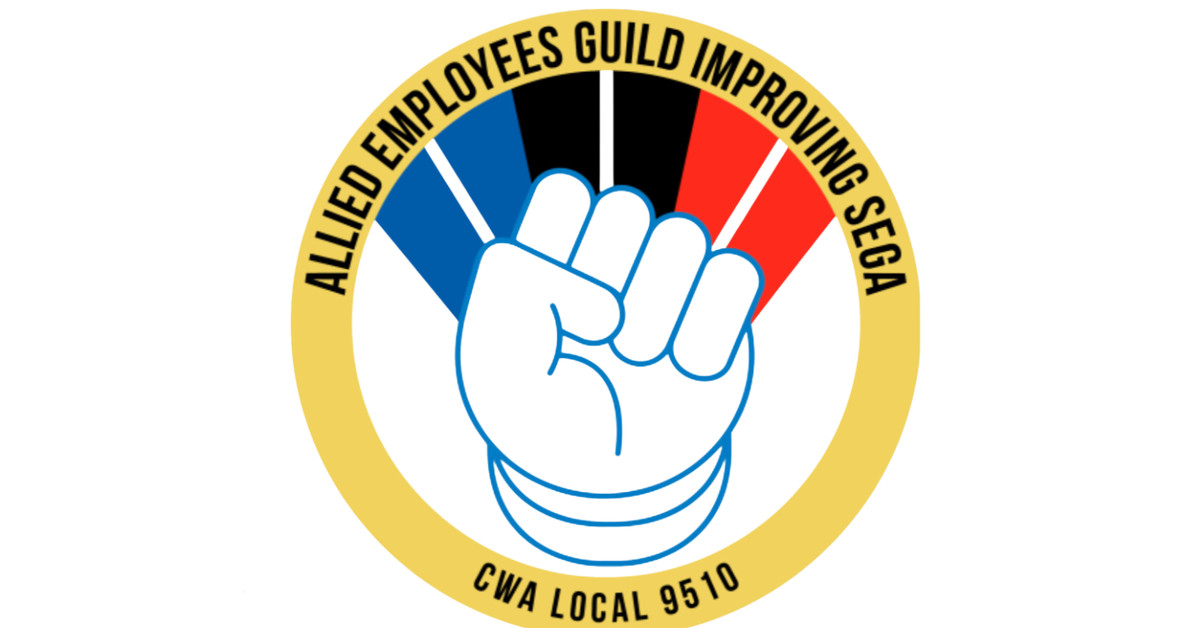cross-posted from: https://radiation.party/post/41940
AEGIS-CWA will represent workers across departments including brand marketing, games as service, localization, marketing services, product development operations, product development, sales, quality assurance teams, more, becoming the largest multi-discipline video game union in the United States.



I agree in principle, but video game companies are notorious for mistreating their workforce. I don’t like government backed unions either, but I do think we should do something to address problems the industry has.
I think unions are a fantastic solution to certain classes of problems, but I think they’re far from a silver bullet, and that they create new problems as well. Ideally we can solve these problems without resorting to creating more bureaucracy.
Sure, but I don’t support it when that “something” is just a worse problem than we started with. I have no issues with unions as a concept. My problem is entirely with the current status where they exist not truly as people coming together to represent their interests, but rather as a government-backed labor cartel that ends up controlling large swaths of whatever market they exist in and fundamentally destroy the basics of voluntary agreement that the economy should be founded upon.
AFAIK, gaming unions aren’t that at all. Other unions are, such as police and teachers unions, but private unions like this don’t usually have government backing.
So while I fully support everyone’s right to organize into a union, ideally it wouldn’t be necessary to get decent working conditions, compensation, etc.
So Sega is 100% free to fire each and everyone who supports unionization?
That depends on local labor laws of course. Most areas have wrongful termination laws that penalize companies for firing merely for trying to form/join a union. They can still choose to fire, they’ll just have to compensate the employee for it.
But yes, they should 100% be allowed to terminate anyone for any reason, though there may be penalties depending on the reason. They should also be allowed to terminate unionized workers, though that could risk an organized strike in addition to the applicable labor laws.
In the “locality” of the United States, where this story happened, it is wholly illegal to fire people for unionizing.
Why do you believe the government should deny the their basic freedom of association?
The freedom of association can be restricted by implied or explicit contracts, just like pretty much any other right.
If I choose to hire someone and they fulfill their job responsibilities, I shouldn’t be able to just fire them because I don’t like something they do that’s unrelated to their job performance. A company should not be forced to retain someone, but there should absolutely be penalties for the employer breaking that employment contract.
Likewise, I think it’s reasonable to expect an employee to give sufficient notice that they’re leaving an organization unless there’s a reasonable reason for that to be immediate (i.e. if working conditions make continued employment unsafe). Employers can also choose to end employment immediately instead of retain the employee for that period, but they’re need to offer severance that covers the period.
That sounds reasonable to me. Both the employee and employer have a freedom of association that they willingly restrict through the employment contract, and there ought to be reasonable penalties for breaking that contract.
Sure. They can sign a contract to those terms. Those terms should not be forced into the contract by the government
There should be certain base rights that are protected in any contract. For example, at one extreme, selling yourself into slavery shouldn’t be recognized by the courts.
Large organizations have more resources to screw over smaller organizations and individuals, so if we’re going to favor one, we should favor the smaller party.
I’m generally a fan of minimal government interference, but contracts are one area where people can easily get screwed over. I think governments absolutely have a place in arbitrating contract disputes, and part of that is deciding what is and isn’t a valid contract.
One thing that I think can help is requiring contracts to have a legally binding summary that is easily understandable by the average person. Anything that only exists in fine print would likely be unenforceable unless a reasonable person would expect it to be there. So for employment, the company would need to be upfront about their unionization policy, out it would likely be an unenforceable part of the contract. I don’t know the details of how that could work in practice, but the fact is that many people don’t understand what they’re agreeing to when they sign contracts.
Why do you describe unions as a labour cartel? Never heard that phrasing before.
Because it’s an apt description of the current state of government-backed unions in the US where this discussion is centered around. Do you find it to be inaccurate?
Not sure, just didn’t know any unions had that kind of power. I’m from AUS, so maybe things are different here